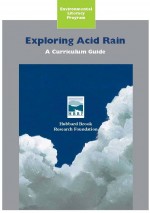Confronted with global warming, genetic engineering, and a suite of complex environmental issues, Congress struggles to establish sound public policy based on current scientific research. Land managers and policy makers likewise often voice frustration about the lack of research in specific areas, while many in the scientific community may feel the policy implications of their own research are apparent.
To address this communication gap the Hubbard Brook Research Foundation (HBRF) initiated a program called Science Links. As part of this program, HBRF convenes working groups of scientists and policy advisors to synthesize and translate research for policy makers.The groups address specific science and policy questions and focus on achieving the three main goals of Science Links:
- Facilitate a dialogue between policy makers, managers and scientists
- Synthesize and translate research results
- Disseminate research findings in a manner that is accessible and meaningful to policy makers
The first Science Links publications, entitled Acid Deposition in the Northeastern United States and Acid Rain Revisited, were released in January 2001. While the first article was published in BioScience and written primarily for scientists, Acid Rain Revisited was designed for the public, describing the results in an easy to understand format and outlining the policy implications of the study. The program also released a report on acid rain, organized a communication training workshop for scientists, and conducted a series of public briefings to disseminate the research findings directly to policy makers. A Science Links project on nitrogen pollution is underway and the results are expected to be released in Spring, 2003.

 Enlarge this image
Enlarge this image